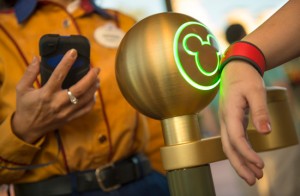Every time a company harnesses some new technological means of gathering data or tracking their customers, the privacy advocates get up-in-arms about the potential “evil uses” of what is going on. I’ve seen it countless times in the last few years, starting with something as seemingly innocuous as customer loyalty cards (ala the Safeway Club card) which you often must use if you want to get the discounts, but in return they can analysis your spending patterns and determine what type of customer you are and target offers specifically for you. Though people then get concerned that they “don’t want the store to know that much about me”, when effectively what they are really saying is “this company is too accurate in their analysis of me, and I don’t like the fact that they’re right”. The retail applications are nothing new though. I’m sure Mr. Hooper down at the General Store decades earlier knew what every one of his customers routinely bought, and even occasionally suggested “Hi, Mrs. Jones! I got this new type of carrots that I think you’d really enjoy, considering how many other organic vegetables you always buy. They’re on sale this week just for you!”
Target got too good at analyzing their customers, and people freaked out. So they found ways to disguise what they knew, and people were happy again. (YAY!) We as consumers are fickle. On one hand, we feel like we should know what people are doing with our personal information, or whatever information someone has gathered, gleaned, or analytically deduced about us. But at the same time, we want deals and discounts that are actually useful. When Amazon tells me that based on my past purchases I might like this, they’re often right. We don’t really want to know that they know what we like, we just want the benefits of them knowing what we like.
Technological advances have taken an even further step with the introduction of Radio-Frequency Identification (RFID) in common use everywhere. Disney announced today that they are turning RFID into a standard way of life in its theme parks like Walt Disney World. This New York Times article describes the new MyMagic+ system Disney is introducing, which includes the MagicBand, an RFID-enabled wristband that will eventually serve as your park tickets, resort room key, charge card, and FastPass line passes.

The concept is great, but out come the privacy advocates concerned about what sinister things Disney is doing behind the scenes to track its customers who may not want to be tracked. As I see it, it’s the same old story of technology making it more obvious that they’re doing what they’ve been doing all along. Every retailer, Disney is no exception, wants to know their customers better so that they can tailor services specifically for them (and yes, without a doubt, make more money from them). While some like myself can be thrilled at the convenience of it, and actually marvel at the thought that I can walk up to Mickey Mouse and he’ll know my name because his embedded RFID-scanner told him so, others find that an invasion of privacy and are terrified by it. To each his own. Disney will do the appropriate thing and allow its customers to opt-out of those services and technologies that bother them. Though strictly speaking, I don’t believe Disney (or any other private company) is under any obligation to do so. If I don’t like it, I have the choice to not go to Disney World. Companies of course want my business, so the good ones will allow me to reduce the technology to satisfy my own comfort level.
I’m fine with a respected company that I trust to gather data on me, and if they can use it internally to improve their services they provide to me, more power to them. I work for a company that provides the software to help customers like these analyze their data and figure out exactly this kind of information about their customers, and know that with the vast majority of these customers, there’s nothing inherently evil in their intentions, other than the fact that they want your money, just like any other successful company would.
Of course, I also respect those who are uncomfortable with the amount of data being collected and analyzed about them, as opposed to those like myself who are perfectly fine with it. Interestingly enough, I find that even in my circles of friends, there isn’t a clear division between those groups. The split isn’t down political ideologies, as I know both liberal and conservative friends who fall on either side of this issue. It also doesn’t seem to be an educational divide, as most of my friends I would consider highly-educated compared to the general populous. Instead, it seems to be a matter of personal comfort, defined by relative levels of cynicism and paranoia. I am completely cynical, and believe that these companies know everything about me already, so if I can benefit from it, I’m at least getting something out of it. Additionally I believe that for the most part, the data they’re collecting would have no use that could be detrimental to my personal life. (Unless Disney publicizes the fact that I like Splash Mountain more than the Hall of Presidents, because that could seriously compromise any future political aspirations I may have.)
So ultimately, I choose not to fear. I’ll embrace the convenience and new services that these technologies can provide. More importantly, I just won’t worry about it.

1 comment:
Thaank you for writing this
Post a Comment